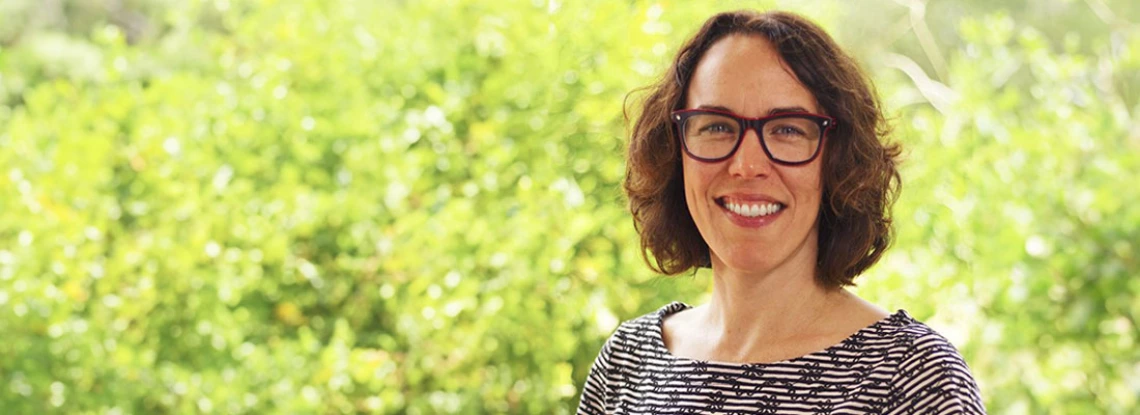Women of Impact: Melanie Hingle

The University of Arizona Office of Research, Innovation & Impact has named Dr. Melanie Hingle, professor in the School of Nutritional Sciences and Wellness (NSW), to its 2023 class of Women of Impact.
The University of Arizona Office of Research, Innovation & Impact has named Melanie Hingle, professor in the School of Nutritional Sciences and Wellness (NSW), to its 2023 class of Women of Impact - a cohort of 30 female-identifying faculty and staff whose leadership and unique skills advance the university’s mission, vision, and purpose as a world-class institution.
Hingle is a dedicated member of the NSW faculty, currently serving as both the associate director of the school and its director of graduate studies. Her research focuses on community-based, culturally sensitive approaches to the prevention and management of type-2 diabetes and other chronic diet-related illnesses. “Diet-related illness disproportionately affects people who have a lower income and live in underserved areas,” she explained. “I work with community partners who are already serving those populations to develop food-as-medicine resources for their clients.”
Hingle initially entered the University of Arizona as an undergraduate student in nutrition and dietetics before going on to earn a Master’s degree in public health in epidemiology and a doctorate in nutritional sciences. She joined the NSW faculty in 2011, where she was instrumental in developing their online graduate certificate and professional science master’s degree program, as well as several popular undergraduate courses. She has held elected posts in the UArizona Faculty Senate, the Strategic Budget and Planning Committee, and Academic Personnel Policy Committee, and she has served as a mentor for countless students and faculty members throughout the campus community.
Motivating Hingle’s efforts is a drive to connect people with resources to help them achieve their goals. “Education is essential to help people maximize their lives and their potential, and in my job, I get to help with that,” she explained. “Whether that means introducing a student to all the great opportunities at the university, or helping other faculty members advance their careers, or convincing a community partner to work with us and use our resources to expand their programs.”
Service to community members and organizations is especially meaningful for Hingle. “The extension and outreach mission of our university is really important to me,” she said. “Our whole purpose is to enhance what's happening around the state, to offer resources and information and to ask nothing in return. When I work with community partners, I make it a priority to be sure what we’re doing is more value for the partner than the university.”
Hingle is currently working in partnership with El Rio Community Health Center to provide food insecure clients with medically tailored groceries, recipes, and consultations with registered dietitians to aid them in managing diabetes and pre-diabetes. She is also working with colleagues at UArizona College of Medicine’s Phoenix campus, Arizona Cooperative Extension, and the Arizona Libraries to develop a culinary medicine curriculum for their students, as well as a free, digital nutrition textbook to alleviate cost as a barrier to education.
UArizona’s students are central to Hingle’s approach to her work – as an educator, a researcher, and an administrator. “We’re here at the university for the students,” she declared. “That is why we exist; that is who we’re here for.”
